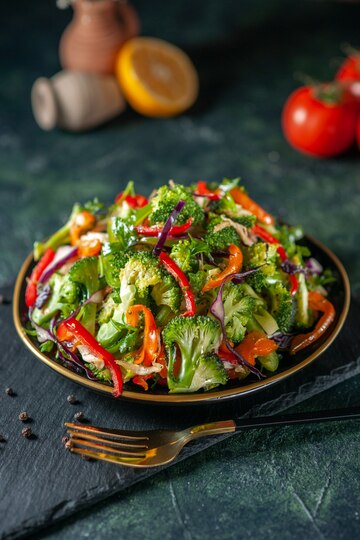Raw veganism is more than just a diet; it’s a lifestyle choice that prioritizes consuming unprocessed, plant-based foods in their natural state. Advocates of raw veganism believe that eating foods in their raw form preserves their nutritional integrity and provides numerous health benefits. However, before you embark on this journey, there are several key aspects of raw veganism that you should consider. Let’s explore what you need to know before you start.
- Understanding the Basics: Raw veganism involves consuming only plant-based foods that have not been cooked or heated above a certain temperature, typically around 118°F (48°C). This includes fruits, vegetables, nuts, seeds, sprouts, and certain grains and legumes that can be eaten raw.
- Nutritional Considerations: While raw veganism can be rich in vitamins, minerals, and antioxidants, it’s essential to ensure you’re getting an adequate intake of key nutrients such as protein, calcium, iron, vitamin B12, and omega-3 fatty acids. Planning a well-balanced diet that includes a variety of foods is crucial for meeting your nutritional needs.
- Food Preparation Methods: Raw veganism requires creative food preparation techniques such as blending, juicing, soaking, sprouting, and dehydrating to enhance flavors and textures without cooking. Familiarizing yourself with these methods and investing in kitchen tools like a high-speed blender and food dehydrator can make the transition to raw veganism smoother.
- Potential Health Benefits: Proponents of raw veganism claim numerous health benefits, including increased energy levels, improved digestion, clearer skin, weight loss, and a reduced risk of chronic diseases such as heart disease, diabetes, and certain cancers. However, scientific evidence supporting these claims is limited, and individual results may vary.
- Potential Challenges: Raw veganism may pose certain challenges, particularly in social settings where finding raw vegan options can be difficult. Additionally, some people may experience digestive discomfort or nutrient deficiencies when transitioning to a raw vegan diet, especially if not properly planned.
- Listen to Your Body: Pay attention to how your body responds to a raw vegan diet and make adjustments as needed. If you experience digestive issues or feel fatigued, consider consulting a healthcare professional or registered dietitian to ensure you’re meeting your nutritional needs.
- Food Safety Concerns: Raw veganism carries a risk of foodborne illness, as consuming raw foods increases the likelihood of exposure to harmful bacteria and pathogens. Practice proper food hygiene, such as washing fruits and vegetables thoroughly and storing perishable items at safe temperatures, to minimize the risk of contamination.
- Gradual Transition: Transitioning to a raw vegan diet overnight can be challenging for some people. Consider gradually incorporating more raw foods into your diet while gradually reducing your intake of cooked and processed foods to allow your body to adjust gradually.
- Community and Support: Joining online forums, social media groups, or local raw vegan communities can provide valuable support, resources, and recipe ideas as you embark on your raw vegan journey. Surrounding yourself with like-minded individuals can help you stay motivated and inspired.
- Personalization is Key: Remember that raw veganism is not a one-size-fits-all approach. It’s essential to personalize your raw vegan diet based on your individual preferences, nutritional needs, and lifestyle factors. Experiment with different foods, recipes, and meal plans to find what works best for you.
Raw veganism can be a rewarding and transformative dietary choice, but it’s essential to approach it with careful consideration and preparation. By understanding the basics, addressing potential challenges, and listening to your body, you can embark on your raw vegan journey with confidence and set yourself up for success in achieving your health and wellness goals.








